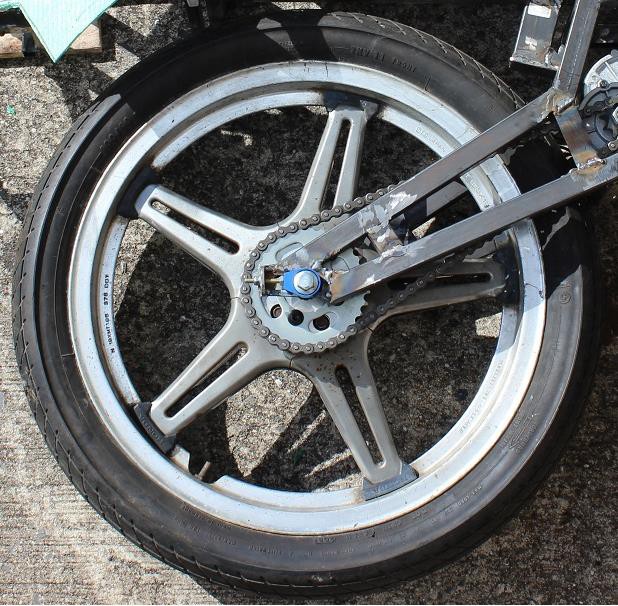On the Medicycle the wheel is one of the most important components, it certainly wouldn't work very well without it.
There are thousands to choose from and its easy to think that just about any wheel will do, so long as you can provide drive to it you should be able to balance, there are however a few things to consider before choosing.
Size - this is probably the most important factor, if you are using a small wheel you save on weight but you are going to feel the bumps and this can affect balance and can even cause the unicycle to fall over.
In this application a larger wheel is better, bumps are not going to have as much of an effect on the unicycle and the extra gyroscopic force exerted by the larger wheel will help you balance, remember though you will need to be able to sit on top of this and it helps if you can touch the ground.
Drive - when buying a wheel make sure that you will be able to either bolt a sprocket to it or fix an axle, its best to got for the rear wheel of a motorbike as they will be designed to fit a sprocket, depending on the size of the sprocket you may have to find or make an adaptor plate.
Width - its going to be easier to stay balanced on a wide wheel then on a thin wheel, however remember that on a unicycle you need to lean to steer, if the wheel is too wide it could interfere and you will end up with the same turning circle as a ship.
The wheel we are using on the Medicycle is a 19" motorcycle wheel from a 1980 Honda CX 500
 Nick Thatcher
Nick Thatcher
Discussions
Become a Hackaday.io Member
Create an account to leave a comment. Already have an account? Log In.